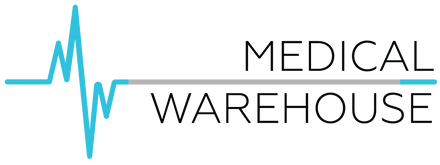Dietary Guidelines and Nutritional Considerations for Anyone With an Ostomy
t should come as no surprise that after having an ostomy you will need to adapt your diet to avoid inflammation and give your body time to heal. Though even after you’ve recovered from your surgery you will most likely have to adhere to some special dietary guidelines for the long term.
According to the Mayo Clinic website, your nutritional needs and tolerances will depend on two main factors,
A.) How much healthy small intestine remains, and
B.) How much time has passed since your surgery.
As a general guideline, most experts agree on the following:
Limit High Fibre Foods
Following an ostomy surgery it’s best to stay away from high-fibre foods such as raw vegetables, raw nuts, whole grains and fresh fruit that can be difficult to digest.
Enjoy Small, Regular Meals
Those who have undergone surgery for an ostomy should try to eat smaller meals at regular times and chew their food well. In addition, avoid overeating or indulging in large meals that may place an unnecessary burden on your digestive system.
Avoid Gas-Producing Foods
Avoid foods that tend to produce gas. Examples of gas-producing foods include cabbage, broccoli, beans and legumes, as well as Brussels sprouts, asparagus and certain types of spices.
Respect Your Food Sensitivities
Those who have food sensitivities or are lactose intolerant should do everything they can to stay away from these foods at all times; but particularly after ostomy surgery.
Get Professional Help if Needed
If you are having difficulty figuring out what to eat or you are experiencing complications such as blockages you can ask your professional health-care provider to recommend a Registered Dietitian (RD). An RD will not only tell you what foods to avoid, they can help you develop and maintain a nutritious diet that meets your nutritional needs and supports your health over the long term.
Meeting certain nutritional requirements is essential for anyone who wants to enjoy good health. For those who have had an ostomy however, additional nutritional requirements are often necessary.
Extra Fluids
Particularly in the weeks following your ostomy surgery it is crucial that you take in extra fluids. Because the colon absorbs both water and salt, the removal of part of it can cause a reduction in the amount of fluids being absorbed by your body. Additionally, some patients find that they lose extra fluid by way of their stoma.
To avoid becoming dehydrated, particularly in hot weather or during and after activity it is crucial to drink enough liquids. Electrolyte drinks and tablets can be very beneficial, and vegetable juices and smoothies can be a delicious way to hydrate while also getting extra vitamins and nutrients.
Counter Any Deficiencies
If you are low on iron, vitamin B12 or you are having any absorption difficulties as a result of your ostomy, make sure to ask your health-care provide about supplementation. Your doctor may recommend that you take injections or a liquid multivitamin to counteract any deficiencies.
Prepare More Easily Digestible Food
If you are having trouble digesting your food you should focus on how to make your meals more easily digestible. Fresh juices and smoothies are a good option, as are blended foods, soups and broths. And vegetables can be steamed, boiled or cooked for easier digestion.
Avoid Foods That Produce Inflammation
Avoiding foods that produce inflammation is key to healing and crucial for anyone living with an ostomy. Try to focus on an anti-inflammatory diet and trade processed foods, fried foods, and animal protein for more non-starchy vegetables and fruit, fish, and whole grains if no issue with gluten is present.
Reintroduction of Food After an Ostomy
Following your ostomy surgery your health-care provider will probably ask you to limit your intake of fibre and eat a diet low in roughage. This will include foods such as raw vegetables and fruit, raw nuts and seeds, as well whole grains. After surgery it’s best to reintroduce these foods slowly and watch out for any foods that cause bloating, gas, constipation or have a laxative effect on your system.
By placing the least amount of stress as possible on your remaining intestine you will help to speed up the healing process by allowing your body to put its precious energy to use where it’s needed most.
Restrictions
While each person is different and will react to ostomy surgery differently it’s best to stay away from constipating foods that could cause pain or discomfort.
In general the following tend to be constipating for most people:
- Applesauce
- Banana
- Cheese
- Potatoes
- Pasta
- Rice
- Peanut butter
- Red meat
- Gluten containing grains
- Milk and dairy products
- Fried foods
Following your ostomy surgery you may need to adjust your diet to ensure that your stool is not too thick. As a result, your health-care provider may recommend foods such as prune juice to help with this, in addition to many of the recommendations above.

